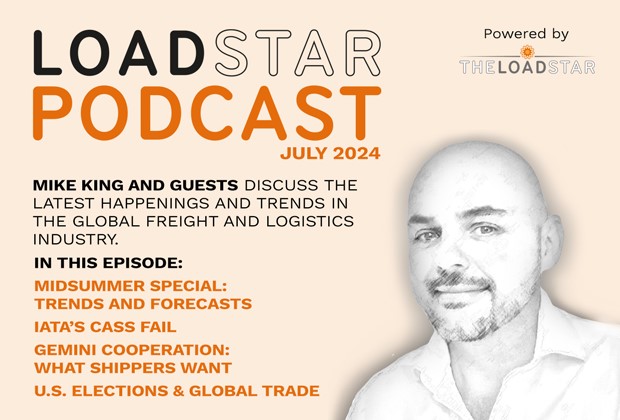Vessel pooling could halve costs of compliance with looming FuelEU regulation
The looming FuelEU Maritime regulation will pose significant challenges and extra costs for the shipping ...
TFII: SOLID AS USUALMAERSK: WEAKENINGF: FALLING OFF A CLIFFAAPL: 'BOTTLENECK IN MAINLAND CHINA'AAPL: CHINA TRENDSDHL: GROWTH CAPEXR: ANOTHER SOLID DELIVERYMFT: HERE COMES THE FALLDSV: LOOK AT SCHENKER PERFORMANCEUPS: A WAVE OF DOWNGRADES DSV: BARGAIN BINKNX: EARNINGS OUTODFL: RISING AND FALLING AND THEN RISING
TFII: SOLID AS USUALMAERSK: WEAKENINGF: FALLING OFF A CLIFFAAPL: 'BOTTLENECK IN MAINLAND CHINA'AAPL: CHINA TRENDSDHL: GROWTH CAPEXR: ANOTHER SOLID DELIVERYMFT: HERE COMES THE FALLDSV: LOOK AT SCHENKER PERFORMANCEUPS: A WAVE OF DOWNGRADES DSV: BARGAIN BINKNX: EARNINGS OUTODFL: RISING AND FALLING AND THEN RISING

Transport is increasingly coming under the spotlight for the emissions it adds to manufacturers’ total carbon footprints. This article looks at the response of some major multinationals, such as Mars and Nestlé. Some retail and food manufacturing companies put supply chain emissions at as much as between 50% and 90% of their total carbon footprint, with transport often accounting for the largest share.
Crew member dies as Maersk Frankfurt catches fire on maiden voyage
Maersk Frankfurt owner declares General Average, as fire-fighting continues
More danger to box ships as Houthis expand Red Sea attack arena
Bangladesh 'jam-packed' with cargo as curfew and internet restrictions continue
K+N eyes more cost-cutting after first-half profit and market share declines
'Last chance' for US importers to stock up before possible east coast port strike
New FMC regulation rules out carrier 'lame excuses' for rolling cargo
Maersk Frankfurt heads for open water as container fire subsides



Comment on this article